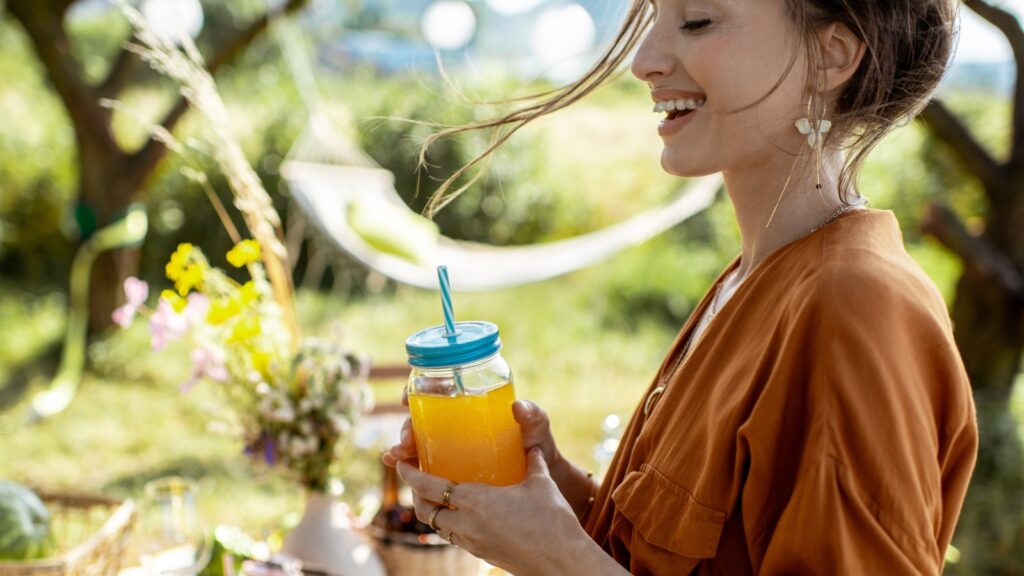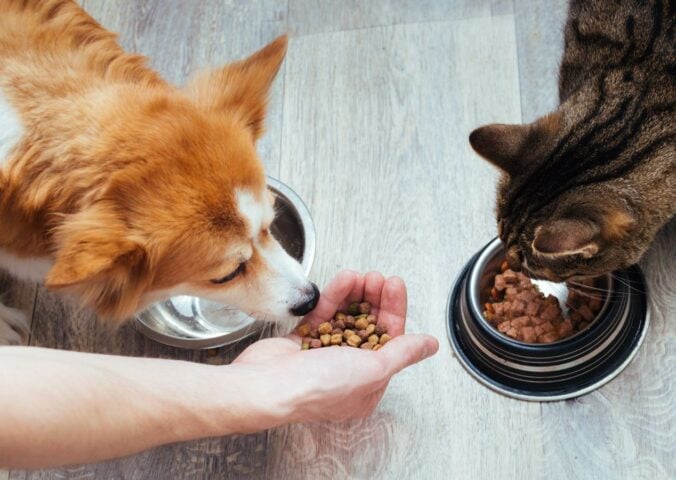With so much conflicting nutrition information out there, juicing has become a bit of a controversial topic. Some have grown scared of juice or dubbed it as ‘bad’ because of the sugar content while others claim juicing is the cure to almost anything. When it comes to nutrition, some people love to gravitate towards an ‘all or nothing’ mentality, but the truth often lies somewhere in the middle. To begin, let’s define juicing.
What is juicing?
Juicing is the process of extracting the juice from fresh fruits and/or vegetables with a juicer or blender. This process should not be confused with a juice fast or cleanse, which involves consuming solely juices for an extended period of time.
Now that we’re on the same page, back to the topic at hand… Is juicing healthy? Well, first of all, whole foods are not inherently ‘bad’. It’s typically what us humans do to food or how we use food that makes it ‘unhealthy’. Let’s take a look at benefits and risks to figure this out.
Benefits of adding juice to the diet

1. Lowering risk of disease
Juice is packed with vitamins, minerals, phytonutrients, and antioxidants which can add a high concentration of anti-inflammatory nutrients to the diet. Recent recommendations from The American Heart Association reveal that the right ‘five- a- day’ mix is two fruit and three vegetable servings for a longer life.
However, the CDC reported in 2017 that only one in ten Americans meet the federal recommendations for fruit and vegetable intake. Some people who are not used to eating fruits and vegetables can find achieving the recommended intake challenging, but consuming more fruits and vegetables is associated with decreased risk of disease and death. Additionally, eating foods rich in polyphenols, may have a protective effect against diseases such as cancer, atherosclerosis, and type 2 diabetes.
Therefore, juice can be a great way to add in more nutrients from fruits and veggies. However, it’s important to note that people should still aim for the servings per day of whole fruits and vegetables that experts recommend, as this also helps to provide fiber.
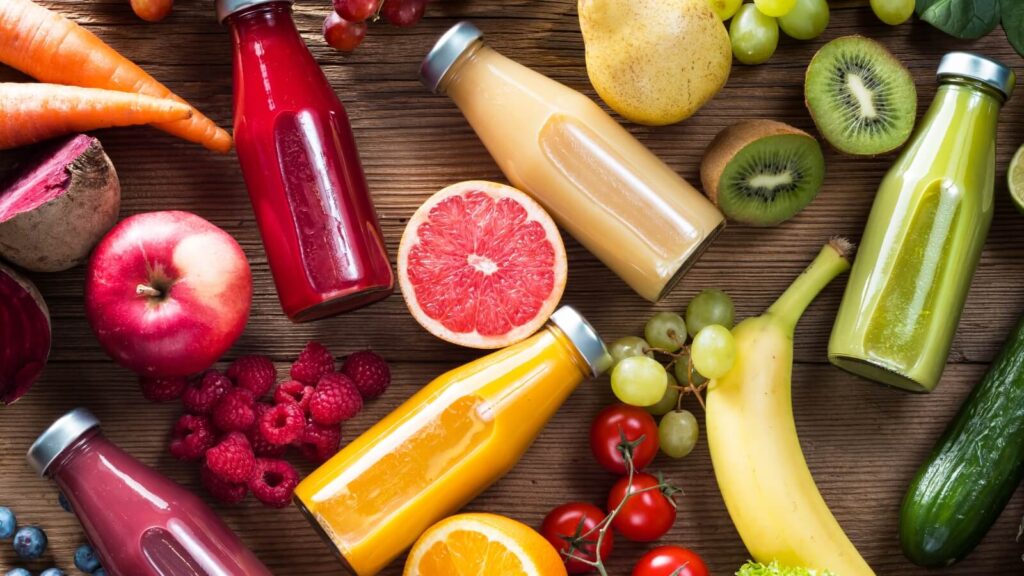
2. It’s easy on your gut
Juice is easily digestible and absorbable because your gut doesn’t have to do much work to break it down without the fiber. This can allow increased bioavailability of phytochemicals and antioxidants . In addition, the polyphenols provided from fruit and vegetable juices may contribute a prebiotic effect on the gut. Prebiotics promote an environment for healthy microbiota to flourish.
3. Improved energy and hydration
Juice can be a quick source of energy because the body absorbs, and can use, the sugar it contains easily. For those exercising for prolonged periods of time or at an athletic level, consuming fluids containing electrolytes and carbohydrates, such as juice, can also be a great way to stay hydrated. Additionally, for those people who don’t like drinking water, adding a small amount of juice may make staying hydrated more palatable.
Juice can also support detoxification. Phytochemicals derived from different produce can support the production of enzymes which aid the body in its natural ability to detox and combat oxidative stress and inflammation.
FUN FACT: Roughly 6 lbs. of produce are in 16 oz. of juice – they help your gut easily extract a high volume of key phytonutrients & micronutrients without having to do the extra work to break down fiber.
Risks
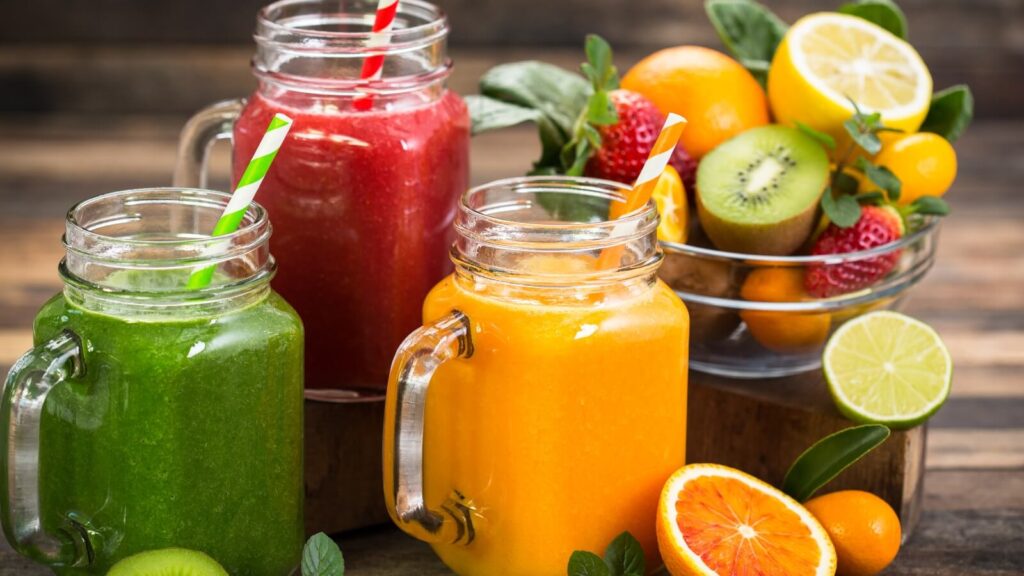
Replacing whole food groups with juice
Juice cannot replace whole fruits and vegetables in the diet because people would lose the benefits of fiber. In addition, juice is very low calorie and would not provide adequate amounts of protein or fat in the diet if someone was consuming juice exclusively.
Juice fasting with underlying conditions
For example, for someone with diabetes or uncontrolled blood sugars, consuming too much juice could potentially lead to hyperglycemia or reactive hypoglycemia. However, pairing juice with enough fibrous foods or proteins can help to prevent a spike in blood glucose and rise in insulin.
Additionally, someone with kidney disease should be cautious with juice intake for several reasons. Those with end stage kidney disease must limit their total daily fluid and potassium intake. In one case study by the Journal of Medicine, a patient with stage 3 kidney disease suffered from oxalate nephropathy following a six-week juice fast. However, for someone without health conditions such as diabetes or kidney disease the risks of adding juice to a balanced diet are low.
High sugar content
Natural juice containing fruit usually tastes sweet. However, some manufacturers add sugar to juice that people buy in stores. The sugar content in juices with added sugars is comparable to the sugar in fizzy drinks. The Dietary Guidelines for Americans advises people to limit added sugars to less than 10 percent of their calories per day. Therefore, people should be aware that juices with added sugars should not form a regular part of a healthy diet
In summary, consuming natural juice as part of a healthy diet may have health benefits associated with the vitamins, minerals, and phytonutrients that the components of the juice contain. Juice can provide a quick source of energy and may support a healthy gut. People should also aim to eat the recommended amount of whole fruits and vegetables per day so that they include adequate fiber in their diet.
Consuming juice exclusively restricts other food groups and may cause a deficiency in essential fats and protein. People who have a health condition such as diabetes or kidney disease should speak to their doctor if they are considering adding juice to their diet.
Let’s look at the best ways to add juice to the diet.
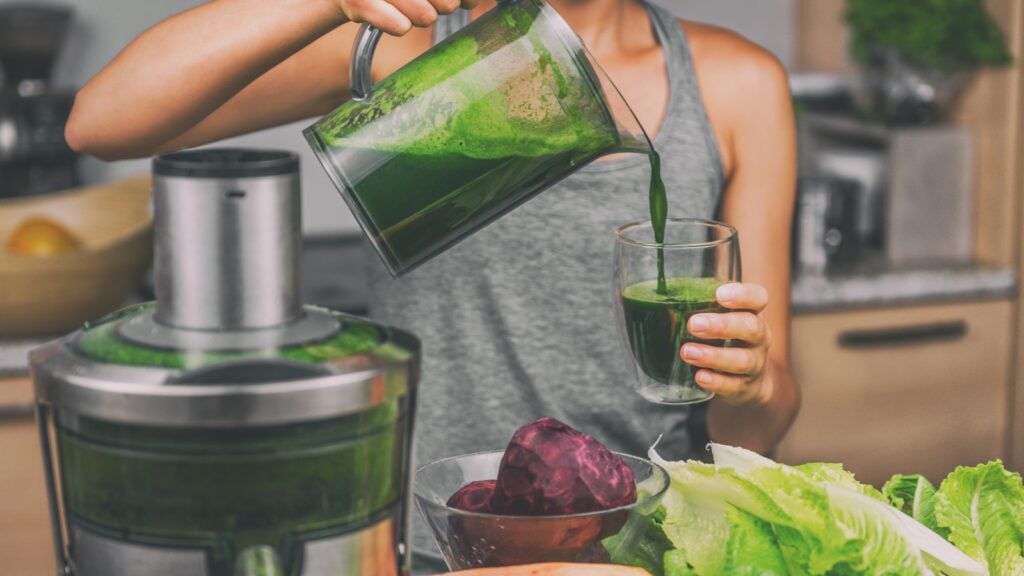
What is the best way to juice?
Juicer
A juicer will make life a lot easier if you’re going to be juicing regularly, but also offers some additional health benefits. Unlike centrifugal or rotary juicing, which generates heat and accelerates oxidation of the produce, cold press juicers gently extract juice from produce by applying pressure. This cold press juicer slowly extracts juice to minimize oxidation, preserving the integrity of the vitamins, minerals, and phytonutrients inside.
Blender
If you’ve got a high-speed blender, blending produce is an option. However, blending will retain the pulp which is insoluble fiber. Insoluble fiber is important in the diet, but to juice you’ll need to then strain the pulp manually. I have done this many times and I’ll say, a juicer is the way to go!
Store bought
This will offer convenience, but the cost can add up over time. Mass produced juices you find on the shelves of your local supermarket are often pasteurized. This kills pathogens and extends shelf life, but the high heat involved may destroy some of the desired nutrients in the process. Sometimes you’ll be out and about and need to grab a juice-to-go. In this case, look for juices which state ‘cold-pressed’, ‘cold pasteurized’, or ‘high-pressure processed’ (HHP) on the label. People should also check for added sugars or additives such as colorings.
Juicing tips

Here are some tips for how I personally include juice in my diet and recommendations I provide to my clients:
- Add 3-4oz juice to a smoothie with fibrous produce and some protein for added nutrients.
- Take a juice when you’re traveling and not sure when you’ll be able to get some fresh produce in, or when you’re going for longer periods between meals.
- Have 6-8oz juice with a meal or snack as a serving of carbohydrate.
- Use a cold press juicer to extract your own juices and blends for the week to preserve nutritional content.
- Add vegetables into your juice to get extra servings of those nutrients in, especially if you have a hard time meeting your recommended servings per day (but still aim to meet that goal, too!).
- Try a variety of colorful produce to reap the most nutritional benefits.
- Get creative in making your own blends!
- In addition to water, have some juice when you’re needing extra hydration, post workout or in a hot climate.
Happy Juicing!
To purchase the Nama juicer with a 10% discount use discount code PBN10 and click here.
*This article contains affiliate links. Find out about our affiliate policy here.
